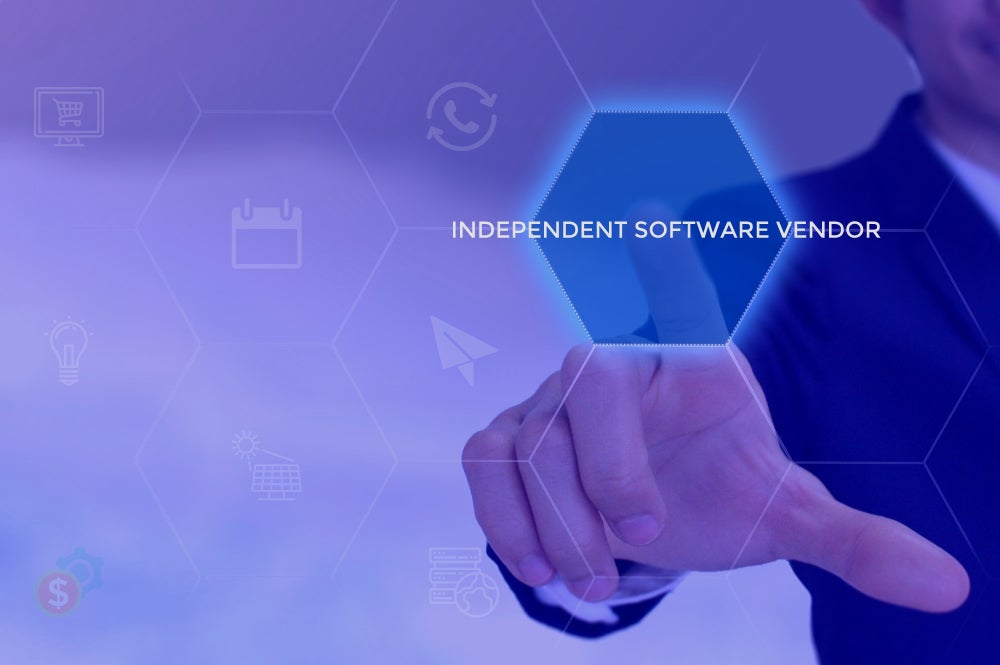The global Independent Software Vendor industry is thriving and due reach $5,653.6 million by 2030. The growth rate sits at an impressive 20% but comes with more competition than ever before. ISVs are facing increased pressure to deliver innovative, user-centric solutions that stand out in a competitive market. One way ISVs can achieve this is by embedding payment processing capabilities directly into their software.
Integrated payment solutions are no longer a luxury or an added feature but a crucial tool for driving value for ISVs, merchants, and end users alike. Here, we explore why integrated payment systems are essential for ISVs and how they benefit all stakeholders.
What is an ISV?
To set the stage, let’s define what ISV means. It refers to individuals or organisations that develop, market, and sell software tailored for specific industries or broader markets. From customer relationship management (CRM) tools to accounting software, ISVs cater to a range of business needs and can sell a single solution or bespoke systems. By integrating payment capabilities directly into their offerings, ISVs can elevate their software’s functionality and appeal.
The concept of integrated payments
Integrated payments refer to payment processing systems embedded within other software solutions used by businesses. Unlike traditional methods, in which users are redirected to a third-party payment processor, integrated systems handle transactions seamlessly within the software. This ensures a unified experience for users and eliminates the friction often associated with multi-step payment processes. For example, if a piece of software had purchasable extra functionality, then it could be bought and paid for within the software itself.
Each integrated payment solution is unique, as businesses have diverse digital ecosystems. At its core, the goal of an integrated payment system is to streamline processes, enhance security, and deliver a better customer experience.
Key benefits of integrated payment solutions for ISVs
Enhanced security for end users
Security is a top concern for businesses and their customers. Traditional payment methods, which often involve redirection to external processors, introduce vulnerabilities where sensitive financial data could be exposed. Integrated payment systems mitigate this risk by embedding security features like tokenisation and adhering to PCI DSS compliance standards. By prioritising security, ISVs can instil confidence in end users, ensuring their data is protected at every transaction stage.
Streamlined user experience
A seamless checkout process is critical in reducing cart abandonment rates and boosting customer satisfaction. Integrated payment solutions allow users to complete transactions without leaving the software interface. This “one-page” approach eliminates unnecessary steps and distractions, creating a frictionless experience that aligns with modern customer expectations. For ISVs, this translates to higher user retention and satisfaction rates.
Operational efficiency for merchants
Merchants benefit significantly from the automation capabilities of integrated payment systems. Tasks like payment record entry, reconciliation, and accounting, which are often manual and time-consuming, can be automated. This not only reduces the risk of human error but also frees up valuable time for merchants to focus on growing their businesses. Moreover, integrated payments enable faster transaction processing, ensuring merchants get paid promptly and improving cash flow.
Revenue growth and increased valuation for ISVs
By offering integrated payment capabilities, ISVs can differentiate their software in a crowded market. This added functionality not only enhances the software’s value proposition but also creates new revenue streams for ISVs through transaction fees or revenue-sharing models. Additionally, embedding payment solutions increases the overall valuation of the software, making it a more attractive offering for investors and partners.
Aesthetic and customisable checkout experiences
Integrated payment systems also allow ISVs to offer businesses customisable checkout experiences that align with their brand identity. With technologies like JavaScript libraries, businesses can design payment processes that are visually appealing and intuitive. Mobile responsiveness ensures that the checkout experience is optimised across all devices, further enhancing usability. This level of personalisation strengthens brand loyalty and trust among customers.
The growing appetite for embedded payments
The demand for embedded payments is on the rise, particularly among small and medium-sized businesses (SMBs). Recent research indicates that approximately 70% of SMBs are interested in adopting embedded payment solutions, with 82% likely to implement them in the near future. This enthusiasm is driven by the need for faster, more streamlined payment processes and the broader trend of digital transformation.
For ISVs, this represents a significant opportunity to meet market demand and position themselves as leaders in the embedded finance space. By integrating payment capabilities, ISVs can cater to the growing expectations of SMBs and their customers, providing solutions that not only simplify payments but also drive revenue and efficiency.
While the benefits of integrated payment solutions are clear, some barriers remain. Many businesses perceive the integration process as complex or costly, and some lack awareness of the technology’s potential. However, advancements in technology and increased support from software providers are helping to lower these barriers. Developer-friendly tools, testing platforms, and robust partner ecosystems are making it easier than ever for ISVs to embed payment solutions into their software.
The future of integrated payments for ISVs
As digital commerce continues to evolve, the role of integrated payments will only grow in importance. For ISVs, embedding payment solutions is no longer just about adding functionality; it’s about creating a cohesive and intuitive user experience that fosters customer loyalty and drives growth. By embracing this technology, ISVs can empower merchants to thrive in a competitive landscape while reaping the rewards of increased software valuation and revenue generation.
The integration of payment systems into software solutions isn’t just about processing transactions; it’s about transforming how businesses and customers interact with payments. By making the checkout process seamless, secure, and beautiful, ISVs have the power to redefine the standards of digital commerce and cement their position as innovators in the industry.

Paul Clarke is chief growth officer at Cashflows








